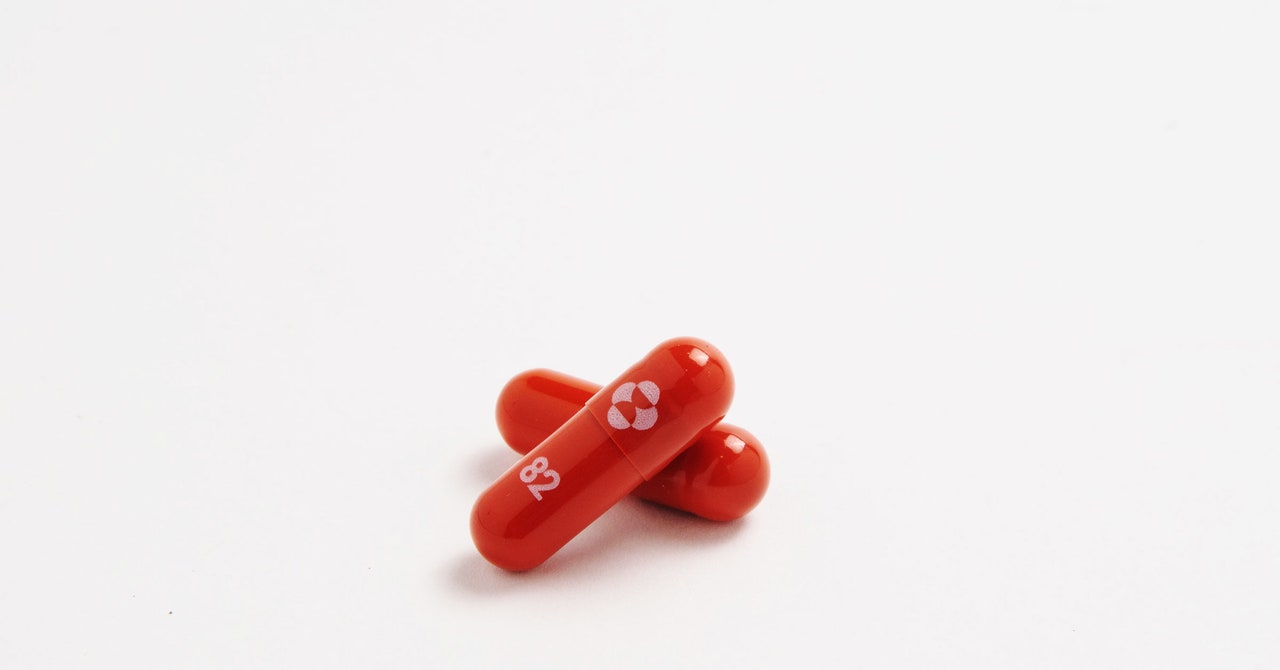
One source of comfort is that the treatment course’s brevity—four pills twice a day for five days—means there is less opportunity for resistance to develop, compared to the lifelong courses of treatment for HIV. And SARS-CoV-2 is not quite as agile as viruses such as HIV or hepatitis C; it tends to make copies of itself at a more leisurely pace, giving it less time for a hardier variant to evolve. Plus, researchers have yet to see any resistance develop against remdesivir, the existing Covid-19 antiviral. “I’m not worried for a while,” says Monica Gandhi, an infectious disease specialist and professor of medicine at UC San Francisco. “Right now, I think of it as the very early stages of HIV, and it’s like a miracle to get anything.”
But if people stop taking their pills too early, viral resistance may be more likely to occur, as some of the virus may linger in the body and resistant strains can multiply. Mark Denison, a professor of pathology, microbiology, and immunology at Vanderbilt University and one of the scientists behind the drug, told Endpoints News that he’s specifically worried about people not finishing the full course of treatment once they begin to feel better. “Ultimately, it depends not on the virus or the drugs—it depends on human beings,” he said. Gandhi echoes the danger of not finishing courses: “That can really increase the development of possible resistance.”
“As emerging variants worsen the Covid-19 pandemic across the globe, we must evaluate potential treatments with these variants in mind,” a Merck spokesperson says. They add that trials of molnupiravir demonstrated “consistent efficacy” across the Gamma, Delta, and Mu variants, suggesting that existing strains of SARS-CoV-2 have not yet succeeded in developing resistance against the drug.
Merck is not the only player in the game. In fact, despite humanity limping through most of the pandemic with a near-empty arsenal of treatments for Covid-19, the antiviral drug race is beginning to tighten. Atea Pharmaceuticals and Roche are collaborating on the development of a similar nucleoside analog antiviral drug, and Pfizer is testing an antiviral with a different mechanism of action: a SARS-CoV-2 protease inhibitor, which works by blocking a step the virus uses to fuse itself with a human cell. The results from the two drugs are expected in the coming months.
The arrival of more antiviral drugs might be the key to preventing resistance from building. When the first antiviral drug against HIV was approved by the FDA in 1987, it quickly became clear that the virus was too quick; in some patients, resistance was developing in a matter of days. Within a few years, more drugs were approved, and an antiviral cocktail became standard treatment, making it much more difficult for the virus to build resistance. In particular, a blend of drugs that each interfere with different points of the virus’s replication process makes it much tougher for a virus to evade all the attacks.
Ultimately, the same approach might be needed for Covid-19. “I think absolutely that a combination would make more sense. Because that isn’t just what we do in HIV because of resistance—we also do it because it’s more effective,” says Gandhi. A multi-prong approach is better at suppressing a virus, and requires lower doses of each drug, resulting in milder side effects. But we need to rationally design these combinations, says Khoo. “Very often in the past, in other diseases, we’ve seen, companies are very, very keen to keep combinations in-house,” says Khoo. “And I think that we don’t have that luxury for Covid.”
It’s too soon to tell how the virus will react to molnupiravir and whether it will successfully outmaneuver its mode of ambush. But it’s worth keeping an eye on, Khoo says. “There’s always the possibility that resistance may arise. We don’t know that it will, but there’s always the possibility it might.”
More From WIRED on Covid-19


